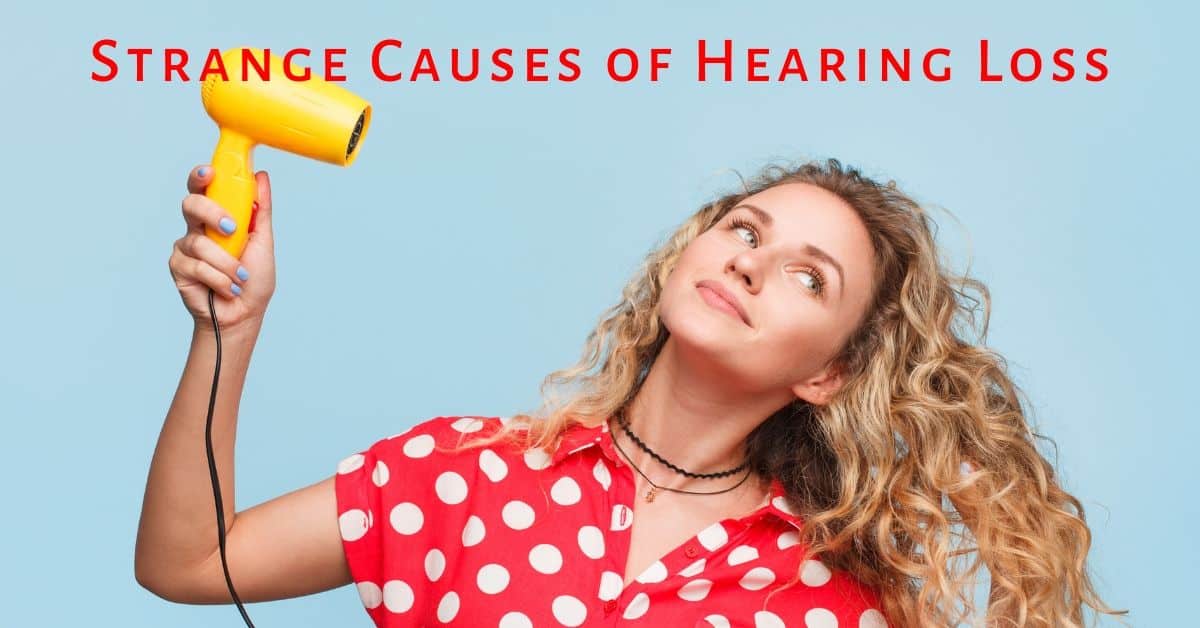
Hearing loss is a common problem in the U.S., one that affects 48 million people – about 20 percent of the whole population. In fact, the chances that you know somebody who has hearing loss is about 1 in 5.
Hearing loss is generally caused by prolonged exposure to loud sounds, or only by the effects of aging. Nonetheless, for some people hearing loss occurs from more unlikely places. We list some of the unusual ways you might encounter hearing loss.
- Cigarette smoking: According to a survey involving more than 3,500 participants, smokers are almost 70 percent more likely to experience hearing loss than non-smokers. Furthermore, the risk of hearing loss looked to have increased the more a person smoked, with heavy smokers having the highest risk of hearing loss in each age group except the youngest.
- Second-hand smoke: Exposure can also increase the risk of hearing loss. Consistent exposure is considered a one-third increase in risk! Scientists refer to cigarette smoke contaminants such as formaldehyde, arsenic, and cyanide hydrogen. Such substances are believed to be the cause of toxic hair cells inside the inner ear, which are the sound transmitters to the brain. When these cells get damaged, it results in hearing loss.
- Airbags: This life-saving feature present in all cars also has an unfortunate side effect of hearing loss. Airbags save lives with instant inflation helping to mitigate the impact of a crash. Using explosive force, the airbags expand to operate. The sound of airbags (plus the sound of a collision) is immediately harmful to ears, with a sound level comparable to a gunshot, measuring at or even higher than 120 decibels. In a recent study, 17 percent of people in an airbag crash now have permanent hearing damage.
- Shingles: Shingles often occur in people aged 60 and older, and in a condition known as Ramsay Hunt syndrome may affect the head. This condition may cause severe loss of hearing in the affected ear, although it may only be temporary if it is treated early.
- Measles: The CDC states that in around 1 in 10 cases of measles, ear infections occur, and the results could be a permanent hearing loss for others. Hearing issues arise when encephalitis affects the brain’s nerves–a disease in which brain swelling occurs.
- Chemotherapy: Chemotherapy is one of the most effective therapies for those who have cancer, but it can be very harsh on the body. From nausea to weight loss and hair loss, the fact that chemotherapy has a few other adverse side effects isn’t shocking. Platinum-based medications, such as cisplatin, used in chemotherapy treatment, raise the risk of hearing loss. Research from the University of Oregon Health and Science showed that 61% of cancer patients treated with platinum-based drugs had hearing loss. “You kill cells throughout the body with chemotherapy, and that can include tiny ear cells,” say researchers.
- Diabetes: Hearing loss is 50% more likely in those with diabetes compared to the general population. While the exact cause is unclear, some form of hearing loss is identified by 40% of patients with diabetes and 10% of people with pre-diabetes.
- Hypertension: When a person has high blood pressure, it can damage the blood vessels anywhere in the body. These can include the vessels that supply the ears with blood. Studies have shown that there is a higher risk of hearing loss in people with high blood pressure. When the rate of blood pressure remains elevated for a prolonged period, permanent ear damage and permanent hearing loss can occur. A person with high blood pressure for a short period can return to normal hearing once the blood pressure is reduced, but hearing loss may be permanent for many.
Treating the root cause
Because hearing loss affects your quality of life, it’s essential to tackle the underlying cause of hearing loss. For instance, when you believe you have a hearing loss due to high blood pressure, you must do something to keep your blood pressure levels under control. Using hearing aids to help improve your hearing is a great idea – but if you don’t fix the root cause, you’re likely to encounter future issues.
While there are many ways to lose your hearing, a couple of simple lifestyle changes will help keep your hearing sharp for years to come. Remember: the slight hassle of wearing personalized earplugs, maintaining a balanced lifestyle, or turning down your smartphone when using earphones is negligible in contrast to the severe inconvenience of hearing loss later in life.
